We partner with school districts, universities, and community organizations to support diverse educators through anti-racist professional-development opportunities.
Professional Development
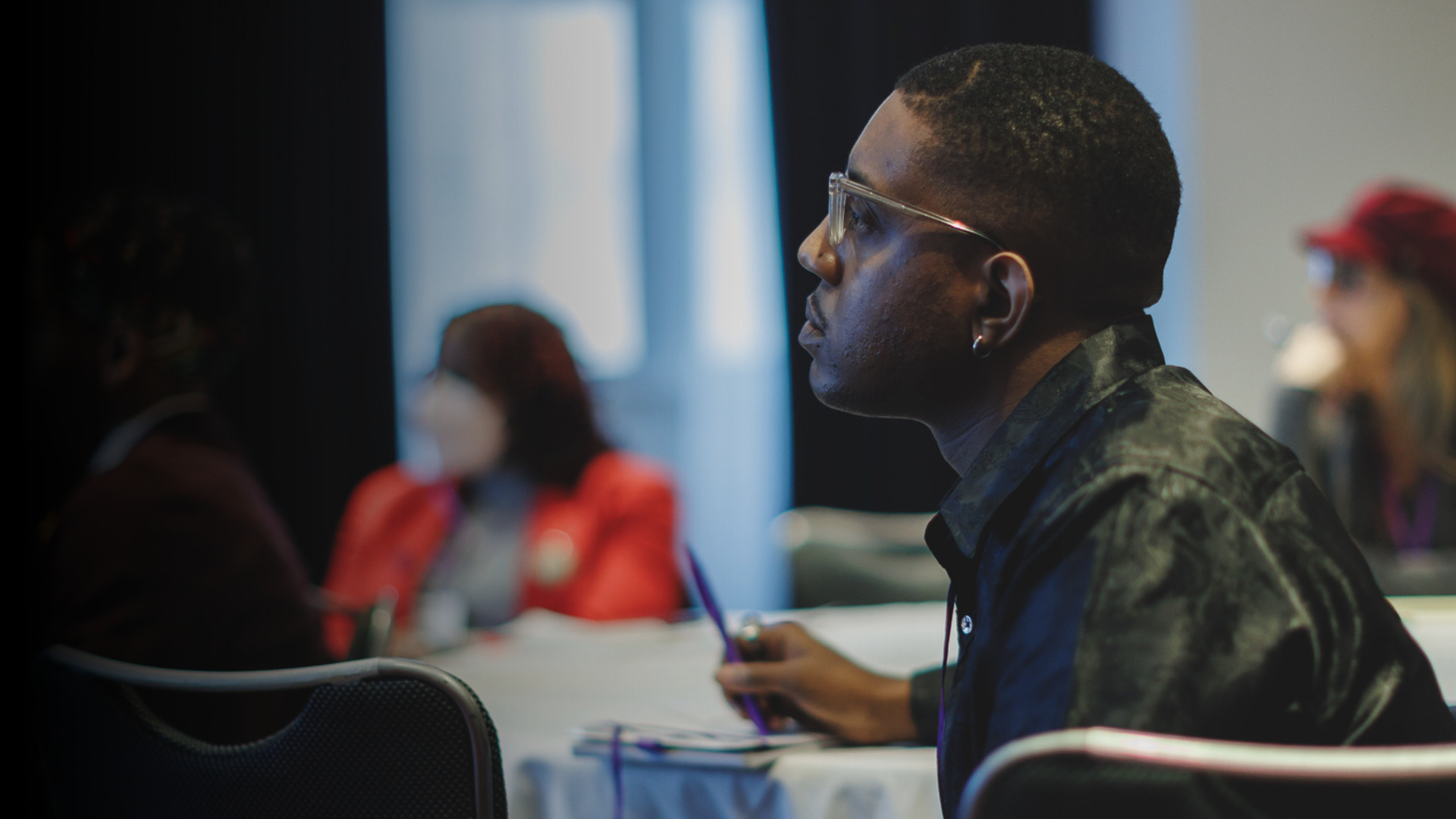
SUPPORT CULTURALLY-PROFICIENT MINDSETS, ATTITUDES AND PRACTICES IN TEACHING.
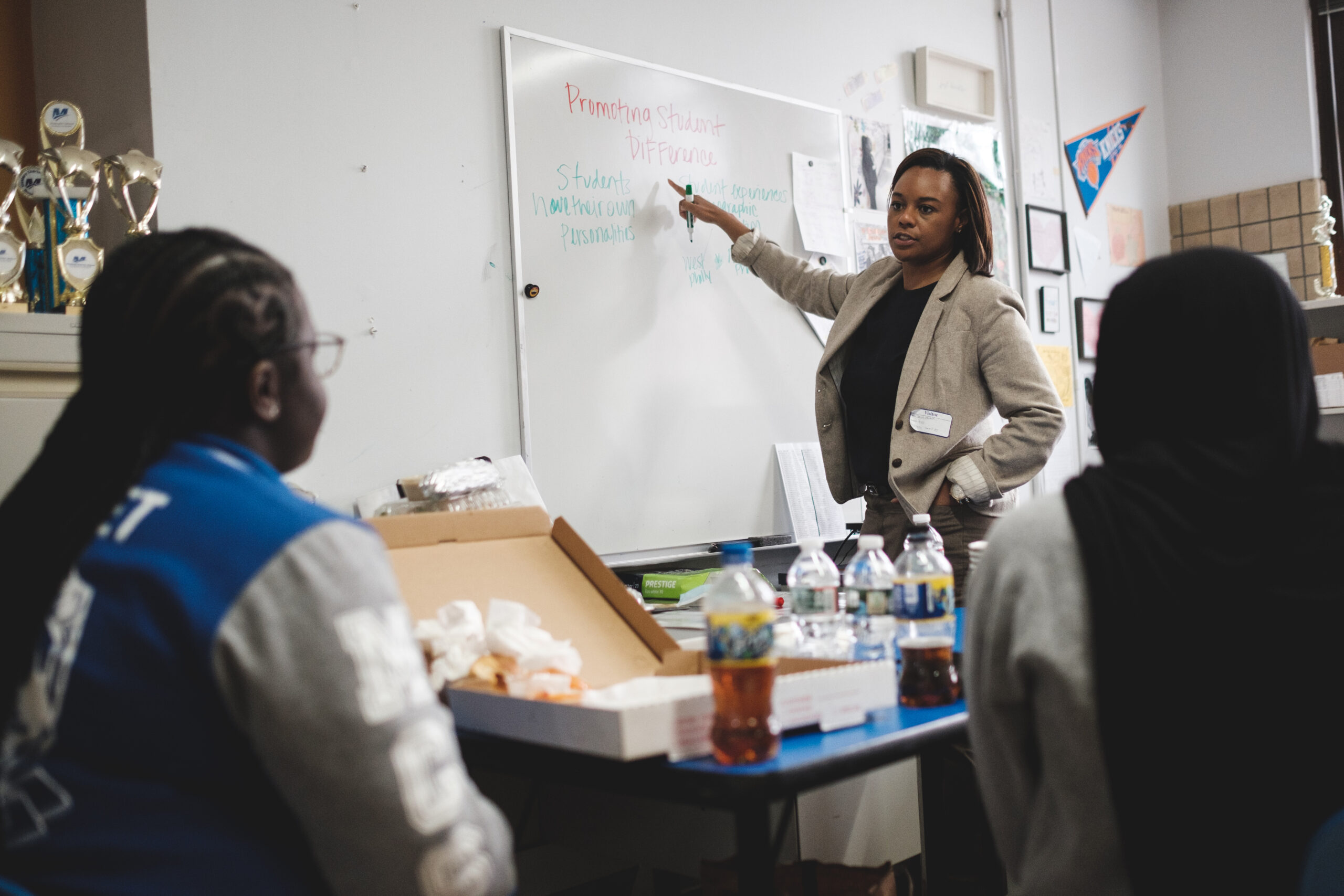
We can tailor our services to meet your specific needs, which could include:
- Strategic planning, including research, analysis and goal-setting on DEI and anti-racist teaching
- Teacher recruitment, hiring and retention toolkits and best practices
- Direct training and train-the-trainer facilitation, including: implicit bias in hiring; engaging in DEI dialogue; anti-racist, anti-bias and equity-centered approaches to school leadership
- Educator ecosystem assessments and co-production
- Design and progress monitoring of professional learning communities
- Targeted intervention services to address racial tensions among students and staff
- Creation of affinity spaces for students and teachers supporting their racial identities
Our instructors provide tailored presentations, dynamic discussions, activation exercises and real-time feedback. Whether online or in-person, we can tailor workshops for your teachers. Workshops run 2.5 hours and include:
- Reflecting on One’s Cultural Identity
- Redressing Bias
- Microaggressions Impact on Diverse Learners
- Collaborating with Families
- Building Culturally-Proficient Relationships with Students
- Modeling High Expectations
- Drawing on Student’s Cultural Knowledge to Inform Instruction
- Formulating an Anti-Racist, Anti-Bias and Equity Driven Leadership Approach
- Engaging in Difficult Conversations on Diversity, Equity, Inclusion, Justice and Belonging
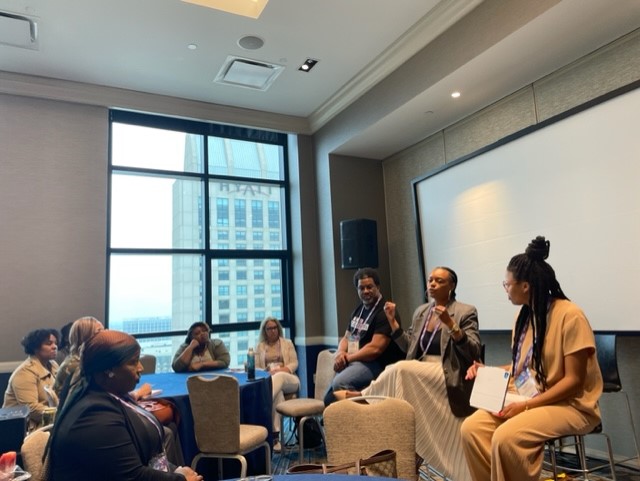
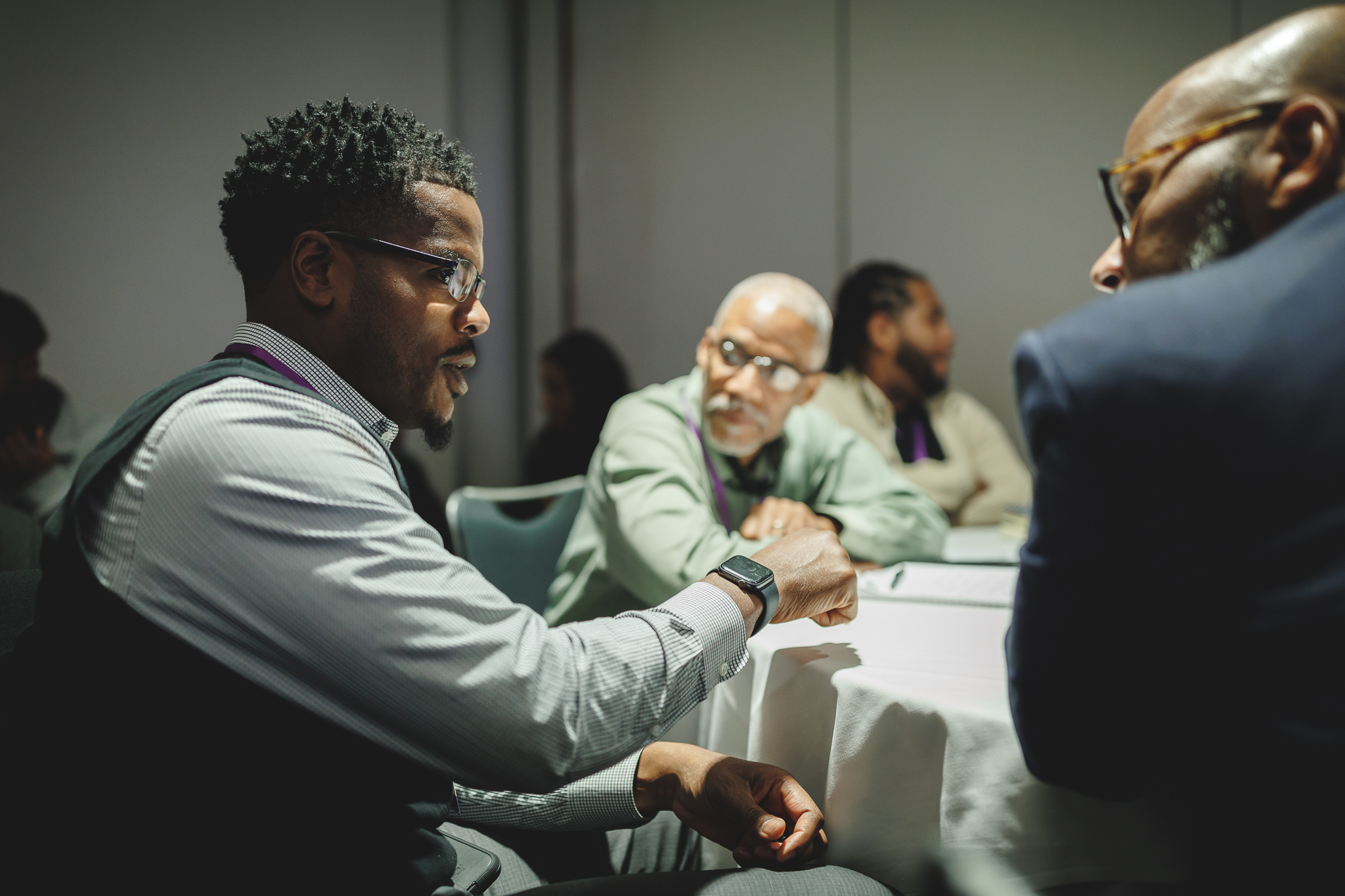
We help create safe spaces to welcome, validate and support Black educators, student teachers and others interested in anti-racist pedagogy and practices.
We structure ways to reflect on our experiences, discuss mutual concerns and explore how we can help one another fulfill our educator-activist roles.
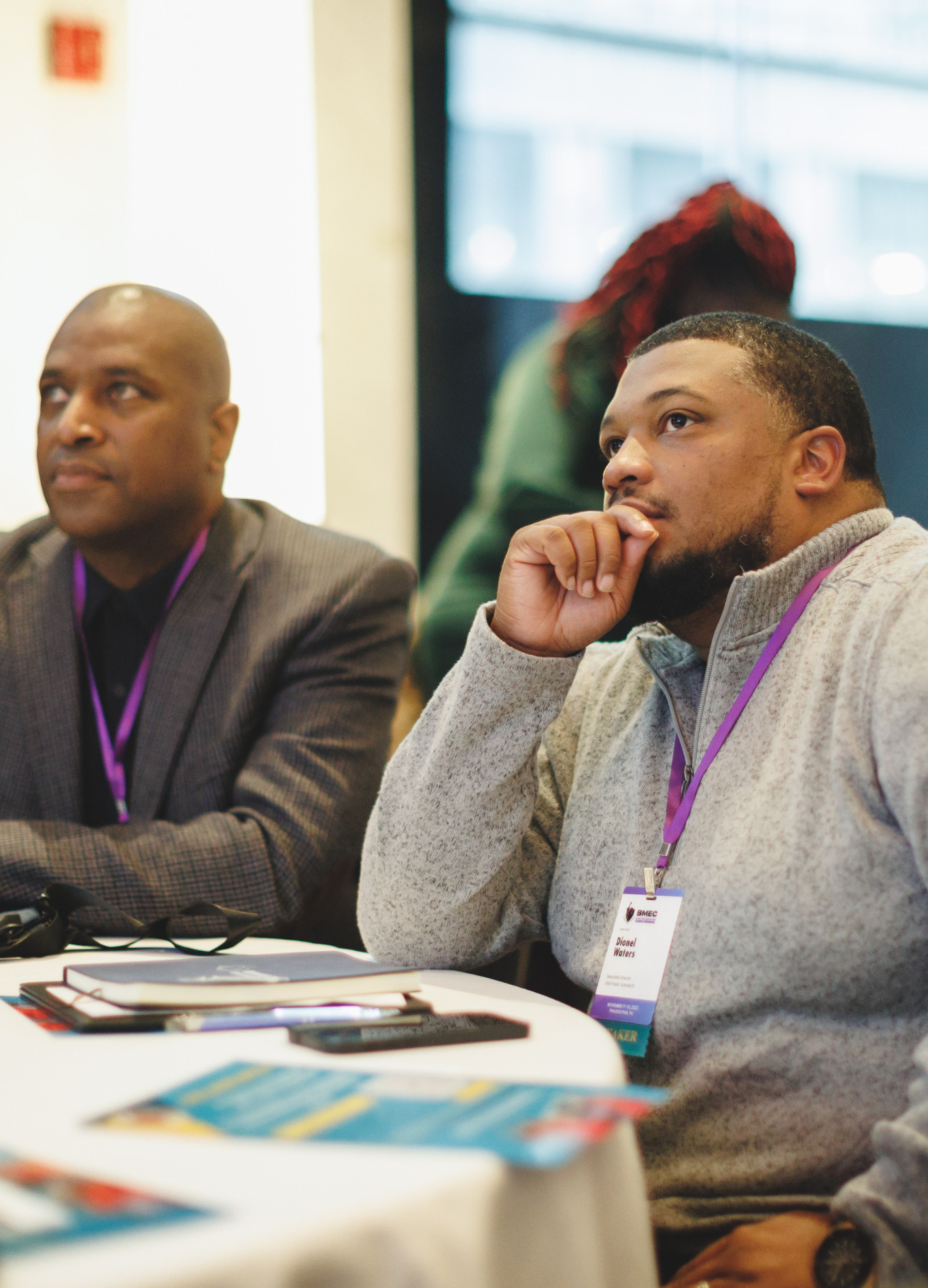
2023 REPORT: RODEL AFFINITY CONVERSATIONS
The lack of educators of color nationwide perpetuates stereotypes and racial bias—all of which contribute to their leaving the profession at higher rates than their white colleagues.
To counter this, we began supporting affinity conversations like the ones the Black Teacher Project reports increases retention and decreases isolation among Black teachers.
With support from the Rodel Foundation, we provide technical assistance to teacher-leaders (who identify as either white or as person of color), training them to hold affinity conversations in Delaware’s Red Clay Consolidated School District and Pennsylvania’s Colonial School District, all based on our guidebook: Respecting Educator Activists of Color: The Anti-Racist Guide to Teacher Retention.
SIGNIFICANT RESULTS OF 2022 AFFINITY CONVERSATIONS
Feeling comfortable being a part of my school community, feeling safe to share my experiences with co-workers, and feeling empowered to encourage white teachers to adopt culturally-responsive language and practices.
Feeling affirmed in my school community.
would participate again.
would participate again.
CONVERSATION FACILITATORS
Interested in follow-up support from the Center.